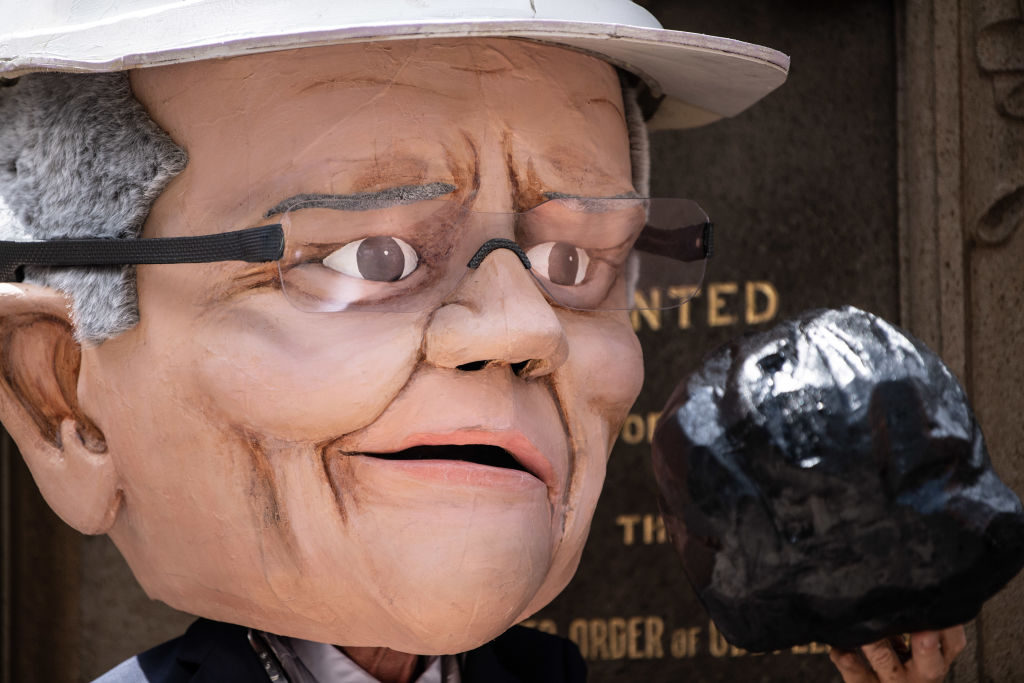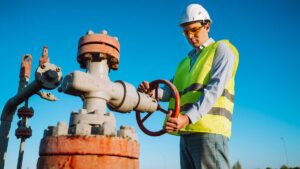Money has been drying up from the Australian renewable energy sector at ‘levels not seen since Tony Abbott was Prime Minister’

A climate protester alluding to Scott Morrison’s affection for coal. Photo by James Gourley, Getty Images
After riding something of an investment boom, renewable energy projects are now largely being ignored by investors as the government’s commitment to them waivers.
That’s the conclusion of the latest research from the Clean Energy Council (CEC) which noted new investment in renewables has “plunged to levels not seen since Tony Abbott was Prime Minister”. During his prime ministership, investors in renewables were understandably hard to find given his declaration that “coal is good for humanity”.
“Investors have been forced to temper their record enthusiasm for Australian wind and solar projects due to a lack of national policy, growing threats of government interference in the energy market and a range of out-of-date regulations,” CEC’s CEO Kane Thornton said.
Abbott might be gone from Kirribilli, but the current man to occupy it, Scott Morrison, shares that love of coal. In fact, he once went so far as bringing a chunk of the combustible rock into Parliament to prove it.
Perhaps then, it’s no surprise that there’s no government policy set to replace the country’s 2020 large scale Renewable Energy Target (RET). It’s a target Australia is on track to meet, to produce 33,000 gigawatt-hours (GWh). With no target beyond 2020, uncertainty has again returned to the market.
Accordingly, the number of new renewable energy projects have plummeted. In the last quarter of 2018, a peak was achieved with 4500 megawatts (MW) of new projects funded. In each of the first two quarters of 2019, funded projects did not exceed 800 MW.
As Australia continues its clean energy transition, that’s a serious problem as the nation looks to what will keep the lights on into the future.
“With Australia’s coal-fired power stations ageing rapidly, it is essential new clean energy projects are built now to ensure lower power prices and improved reliability when these old clunkers retire from service,” Thorton said.
While subsidies for new projects are no longer needed, according to CEC analysis, consistent long-term policy is required. Without the supply, power prices could continue to surge, Thorton warned.
“A lot of the problems we are seeing now are symptoms of the underlying issues – the need for strategic investment in the electricity network to service the best zones for renewable energy across the country and unlock more, cheap clean power,” he said.
Yet investors have gone missing with no ongoing commitment from government to the energy sector.
“Investment in energy storage is challenging without market reform and clear policy that can reduce uncertainty and recognise the value that these projects provide to the energy system and market,” Thorton said.
The fact that Coles and Woolworths even have 2020 renewable energy targets means the Australian government now finds itself with no more policy direction than the country’s grocers.
This article first appeared on Business Insider Australia, Australia’s most popular business news website. Read the original article. Follow Business Insider on Facebook or Twitter.
UNLOCK INSIGHTS
Discover the untold stories of emerging ASX stocks.
Daily news and expert analysis, it's free to subscribe.
By proceeding, you confirm you understand that we handle personal information in accordance with our Privacy Policy.








